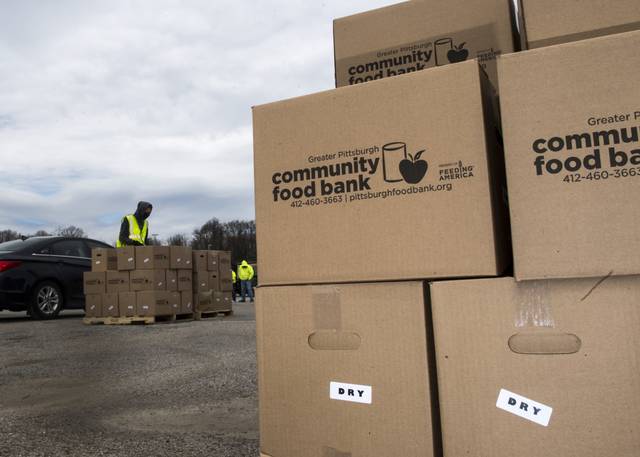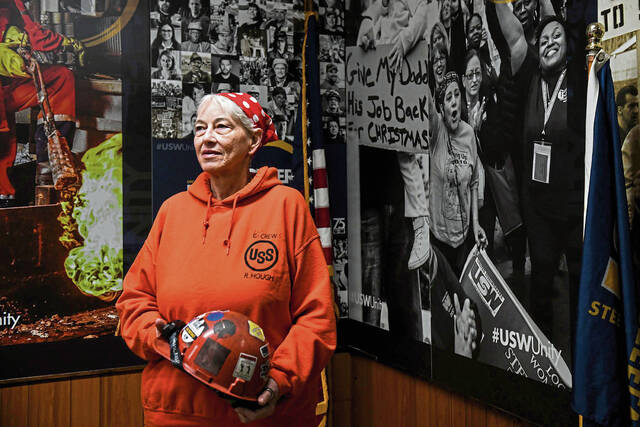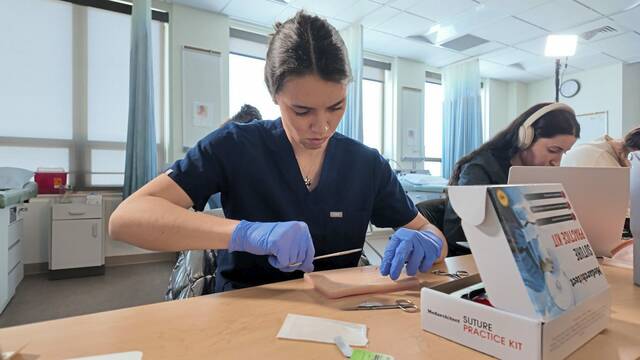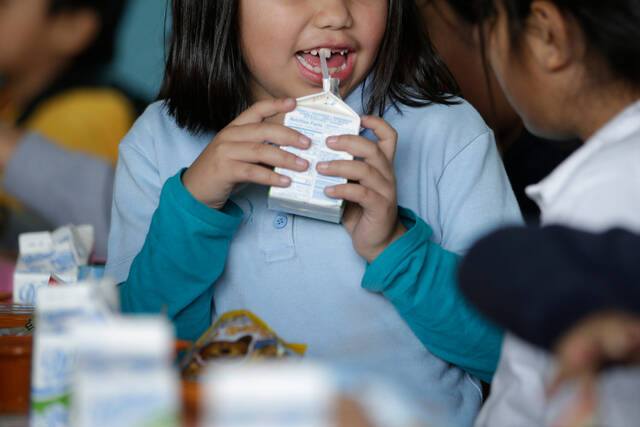Within days of the coronavirus shutdown in mid-March, community foundations kicked into high gear to shore up the nonprofit infrastructure of Southwestern Pennsylvania.
From the 75-year-old Pittsburgh Foundation to a newer ring of smaller county and regional community foundations, there was little hesitation to reach out and tap donors to direct support to an array of organizations including museums, food banks, health clinics and homeless shelters.
Community foundations, grant-making organizations established to manage multiple charitable funds to benefit defined geographic regions, typically operate quietly in the background underwriting many donor-advised funds.
The pandemic brought their role to the surface.
The Pittsburgh Foundation tapped its resources along with three of the region’s largest philanthropic legacy foundations — the Heinz Endowments, the R.K. Mellon Foundation and the Hillman Family Fund — to pull together a $4 million emergency action fund. Other donors also stepped forward. Community foundations in Washington, Cambria, Somerset and Bedford counties likewise jumped to action.
Large grant allotments have included:
• $2.98 million to 167 nonprofits in Allegheny County through the Pittsburgh Foundation.
• Nearly $528,000 in grants to 31 nonprofits in Westmoreland County through the Westmoreland County Community Foundation, an affiliate of the Pittsburgh Foundation.
• $217,000 in grants to 18 nonprofits in Beaver County through the Pittsburgh Foundation.
• $230,000 in grants to more than 50 nonprofits in Cambria, Somerset and Bedford counties through the Community Foundation of the Alleghenies.
• $330,000 in 17 grants to nonprofits in Washington County through the Washington County Community Foundation.
Community foundations that regularly work with the nonprofit community were well positioned to respond to cascading needs that erupted when the shutdown left 1.7 million Pennsylvanians unemployed.
Greensburg lawyer Vincent Quatrini, the original force behind the establishment of the Community Foundation of Westmoreland County, also has served on the board of the Pittsburgh Foundation.
“When we formed the Community Foundation of Westmoreland County 25 years ago, it was always our hope that when a crisis like this occurred the community foundation would be in a position to effectively help, and that has occurred,” Quatrini said.
While the Foundation of the Alleghenies, which serves Cambria, Somerset and Bedford counties, targeted small grants to a wide range of nonprofits including public safety organizations like ambulance corps and volunteer fire departments, the Pittsburgh Foundation’s Emergency Action Fund focused on small arts organizations and nonprofits that serve basic human needs, such as community medical clinics and food and shelter.
A spokesperson for the Pittsburgh Foundation noted that while grants that flowed through its fund were identified by county, many of the organizations included served populations across county lines.
Additional grants are expected to be announced soon.
In Allegheny County, grant amounts were from $3,400 to $25,000. Recipients ranged from Chamber Music Pittsburgh to Building Block of Natrona, a small nonprofit that provides personal hygiene products to families, after-school tutoring and summer lunch/snack programming for youths in the Alle-Kiski Valley.
In Westmoreland County, grants from $5,000 to $25,000 went to everything from Greensburg’s renowned Westmoreland Museum of American Art, which had lost revenues from its museum shop and rentals when it locked its doors, to the Union Mission, a small men’s homeless shelter near Latrobe, and the Knead Community Café, a pay-what-you-can, volunteer-run restaurant in New Kensington.
As the demand for services grew, many groups struggled to pay their bills.
Curtis Hoffman was glad for the help to underwrite costs when the Christian Layman Corps, a small Greensburg nonprofit with a huge footprint, was forced to close its thrift shop that raises money for the operation.
The organization provides beds and new mattresses to needy children, offers food, clothing and household goods to needy veterans across a four-county area and runs an emergency food pantry.
“If you give us $100, it all goes into the kids or the vets. We don’t know when we’ll be able to reopen the shop,” Hoffman said. “So that grant made a big difference. It will help us cross over and pay the bills and keep our trucks on the road for the next two or three months.”
Bobbi Watt Geer, executive director of the United Way of Southwestern Pennsylvania, said the breadth and depth of the economic downturn spurred by the pandemic is stunning.
“Really, there is not an organization that hasn’t been deeply affected by this,” she said.
Her organization, which provides services across a multi-county region, helped coordinate the initial response with the Pittsburgh Foundation and received $350,000 in two grants in an initial wave of large-scale systems awards designed to shore up the region’s assistance infrastructure.
The agency used the grants to beef up its 2-1-1 helpline, a 24/7 call service that connects callers with nonprofits that can provide assistance and a service that transports boxed food and meals for homebound residents to locations across the region.
Already, 2-1-1 calls for food assistance have quadrupled over the same period last year. Watt Geer said there is the potential for a tidal wave of new needs when the state lifts its moratorium on utility shut-offs, mortgage foreclosures and evictions.
“People are still going to owe that money then. I believe this is going to continue through the next year,” she said.
Coordinating with the foundations has been an important part of seeing that assistance goes where it is needed, she said.
Phil Koch, executive director of the Westmoreland County Community Foundation, said its role in the ongoing crisis has moved beyond providing grants.
“A lot of our nonprofits reached out to us when their volunteers were showing up without masks. So we reached out to Global Links and they donated 20,000 masks to us. Then we reached out to Bud Mertz with Westmoreland Public Safety, and he set up a distribution to get the masks out to those folks,” Koch said. “Now we’re hosting a weekly conference call with about 150 to 170 Westmoreland County nonprofits where we bring on people like Mertz or Dr. Carol Fox (the medical director of Excela Health) to answer questions.”
Quatrini said he’s proud of the group’s work.
“It took 25 years to get to this point and a marriage of the Pittsburgh Foundation. That is part of the magic,” Quatrini said. “We can work with them to see which agencies are already giving money so we don’t duplicate the money. One of most rewarding parts of this is that organizations that would be overlooked by a major foundation because they are so small would be able to be identified and helped.”








